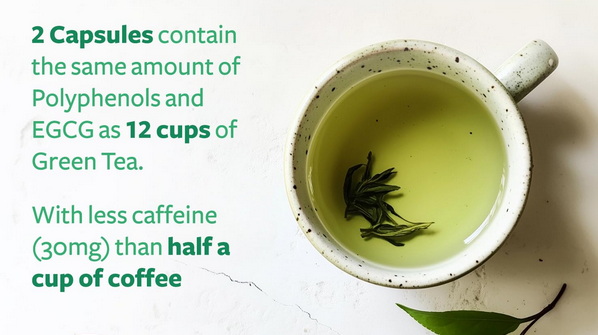Content Menu
● Understanding Green Tea Extract
>> Health Benefits of Green Tea Extract
>> Additional Benefits
● Dosage Considerations
>> Comparison of Dosages
● Is 50 Mg Too Low?
● Forms of Green Tea Extract
● Potential Risks of Excessive Intake
● How to Incorporate Green Tea Extract into Your Diet
● Conclusion
● Frequently Asked Questions (FAQs)
>> 1. What are the main components of green tea extract?
>> 2. Can I take green tea extract if I am sensitive to caffeine?
>> 3. How long does it take to see results from taking green tea extract?
>> 4. Is it safe to take green tea extract daily?
>> 5. Can green tea extract help with weight loss?
● Citations:
Green tea extract has gained popularity as a dietary supplement due to its numerous health benefits. However, many people wonder if taking 50 mg of green tea extract is considered a lot. This article explores the implications of this dosage, its health benefits, potential risks, and how it compares to other forms of green tea consumption.
Understanding Green Tea Extract
Green tea extract is derived from the leaves of the "Camellia sinensis" plant. It is a concentrated source of antioxidants, particularly catechins, which are believed to provide various health benefits. The most prominent catechin in green tea extract is epigallocatechin gallate (EGCG), known for its potential effects on weight loss, heart health, and cancer prevention.

Health Benefits of Green Tea Extract
- Antioxidant Properties: Green tea extract is rich in antioxidants that help combat oxidative stress in the body. This can reduce the risk of chronic diseases and promote overall health.
- Weight Loss: Studies have shown that green tea extract can aid in weight loss by enhancing metabolic rate and fat oxidation. It may also help reduce body fat, particularly in the abdominal area.
- Heart Health: Regular consumption of green tea extract can improve heart health by lowering LDL cholesterol levels and improving blood circulation.
- Brain Health: The antioxidants in green tea extract may protect brain cells from damage and reduce the risk of neurodegenerative diseases such as Alzheimer's and Parkinson's.
- Skin Health: Green tea extract is often used in skincare products due to its anti-inflammatory properties and ability to improve skin elasticity.
Additional Benefits
In addition to the aforementioned benefits, green tea extract has been associated with other positive health effects:
- Diabetes Management: Some studies suggest that green tea extract may help regulate blood sugar levels and improve insulin sensitivity, making it potentially beneficial for individuals with type 2 diabetes.
- Cancer Prevention: Research indicates that the antioxidants in green tea extract may inhibit cancer cell growth and reduce the risk of certain types of cancer, including breast, prostate, and colorectal cancers.
- Anti-inflammatory Effects: The anti-inflammatory properties of green tea extract can help alleviate symptoms associated with chronic inflammatory conditions like arthritis.
- Improved Exercise Performance: Some evidence suggests that green tea extract can enhance exercise performance by increasing fat oxidation during workouts, leading to improved endurance.
Dosage Considerations
When considering whether 50 mg of green tea extract is a lot, it's essential to understand typical dosages. Most studies suggest that effective doses range from 300 mg to 800 mg per day for significant health benefits. Therefore, 50 mg is relatively low compared to these recommendations.
Comparison of Dosages
| Dosage (mg) | Potential Effects |
| 50 | Minimal effects; considered low |
| 300 | Moderate effects; supports weight loss |
| 500 | Significant effects on metabolism |
| 800 | Optimal for maximum health benefits |
Is 50 Mg Too Low?
Given that many supplements contain higher concentrations of EGCG (often around 250 mg per capsule), taking only 50 mg may not provide substantial health benefits. It might be suitable for those sensitive to caffeine or those who prefer to start with a lower dose before increasing it gradually.

Forms of Green Tea Extract
Green tea extract is available in various forms, including capsules, powders, and liquid extracts. Each form has its pros and cons:
- Capsules: Convenient for daily use; however, they may take longer to absorb compared to liquid forms.
- Powders: Can be mixed into smoothies or beverages; offers flexibility in dosage but may have a distinct taste that some find unpalatable.
- Liquid Extracts: Generally absorbed faster but require careful measurement to ensure proper dosing.
Potential Risks of Excessive Intake
While moderate consumption of green tea extract is generally safe, excessive intake can lead to adverse effects:
- Liver Damage: High doses (over 800 mg) have been linked to liver toxicity in some individuals. Symptoms may include jaundice, fatigue, and abdominal pain.
- Gastrointestinal Issues: Some users report stomach upset or nausea when taking high doses. Taking supplements with food may help mitigate these effects.
- Interactions with Medications: Green tea extract can interact with certain medications, including blood thinners and stimulants. It's crucial to consult a healthcare provider if you are on medication or have underlying health conditions.
How to Incorporate Green Tea Extract into Your Diet
Integrating green tea extract into your daily routine can be simple:
1. Start Slow: If you're new to green tea extract, begin with a lower dose (like 50 mg) and gradually increase as tolerated.
2. Timing Matters: Take your supplement at a time that suits your lifestyle—some prefer taking it in the morning for an energy boost, while others may choose post-workout for recovery benefits.
3. Combine with Healthy Habits: For optimal results, pair your supplement intake with a balanced diet rich in fruits, vegetables, whole grains, and lean proteins alongside regular physical activity.
4. Stay Hydrated: Drinking plenty of water throughout the day can help your body process the supplement more effectively.
5. Consider Whole Foods: Including actual green tea in your diet can also be beneficial. A cup of brewed green tea typically contains about 30-50 mg of EGCG per serving.
Conclusion
In conclusion, while 50 mg of green tea extract is not considered a lot compared to typical recommended dosages, it can still provide some health benefits, especially for those who are cautious about caffeine or are new to supplements. For individuals seeking more significant effects, higher doses may be necessary. As always, it's advisable to consult with a healthcare professional before starting any new supplement regimen.

Frequently Asked Questions (FAQs)
1. What are the main components of green tea extract?
Green tea extract primarily contains catechins, particularly EGCG, which are powerful antioxidants known for their health benefits.
2. Can I take green tea extract if I am sensitive to caffeine?
Yes, many green tea extracts contain lower levels of caffeine compared to coffee. However, it's essential to check the label for specific caffeine content.
3. How long does it take to see results from taking green tea extract?
Results can vary based on individual metabolism and lifestyle factors but typically may take several weeks of consistent use to notice significant changes.
4. Is it safe to take green tea extract daily?
For most people, taking moderate amounts (300-800 mg) daily is safe. However, exceeding this amount can lead to adverse effects.
5. Can green tea extract help with weight loss?
Yes, studies suggest that green tea extract can enhance metabolic rate and fat oxidation, contributing to weight loss when combined with a healthy diet and exercise.
Citations:
[1] https://www.healthline.com/nutrition/10-benefits-of-green-tea-extract
[2] https://pmc.ncbi.nlm.nih.gov/articles/PMC2855614/
[3] https://examine.com/supplements/green-tea-extract/
[4] https://www.alamy.com/stock-photo/green-tea-extract.html
[5] https://www.youtube.com/watch?v=6-2FJMtvcNA
[6] https://www.zhounutrition.com/blogs/the-greatness-files/green-tea-extract-q-a
[7] https://www.elo.health/articles/green-tea-extract-supplements/
[8] https://www.mountsinai.org/health-library/herb/green-tea
[9] https://pmc.ncbi.nlm.nih.gov/articles/PMC7922336/
[10] https://www.freepik.com/free-photos-vectors/green-tea-extract






























